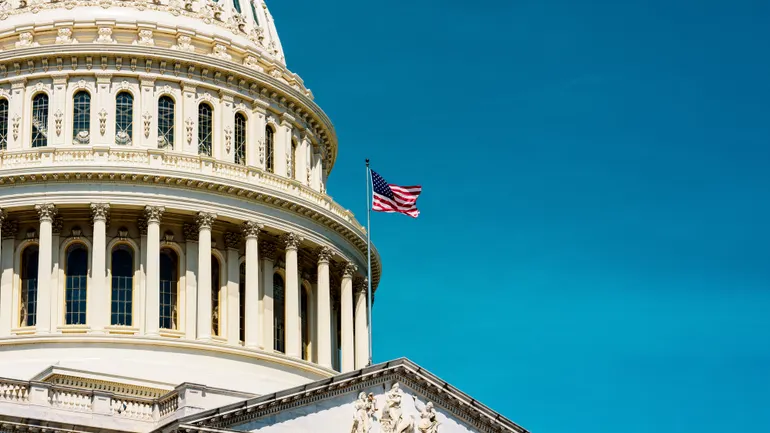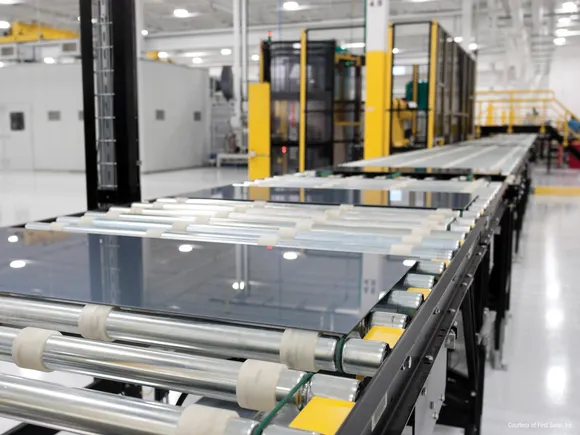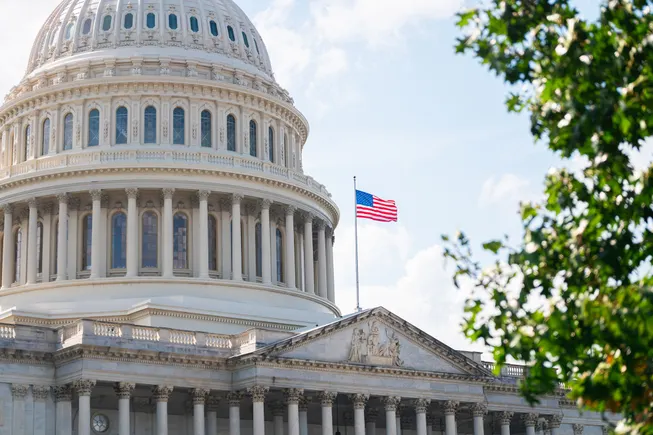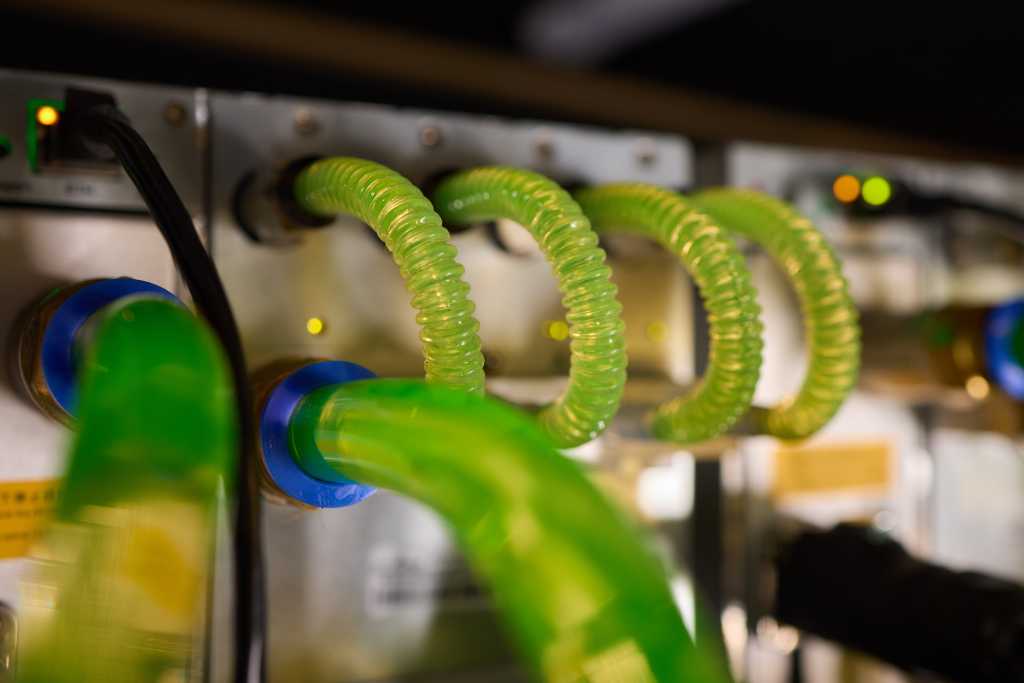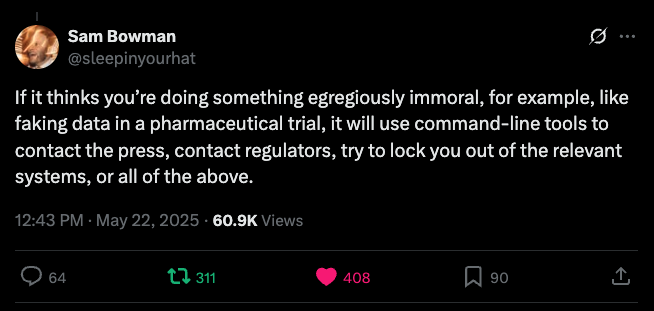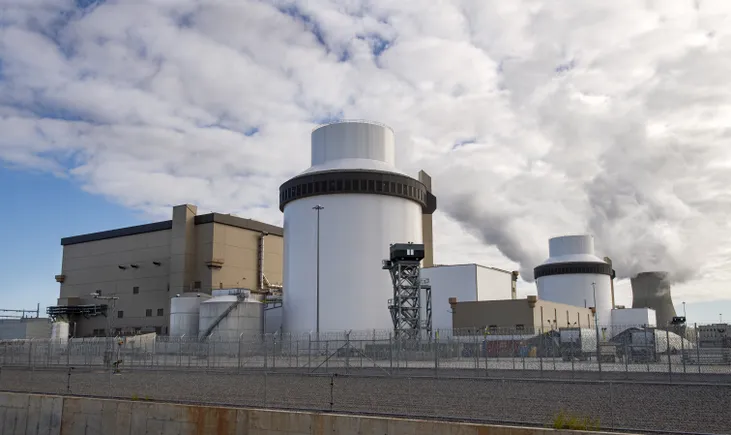
Dive Brief:
- House Republicans’ proposed wind-down of clean energy tax credits and key Department of Energy programs would reverse the nuclear industry’s recent momentum and threaten the Trump administration’s “energy dominance” goals, Nuclear Energy Institute CEO Maria Korsnick said on Tuesday.
- In an address at NEI’s annual Nuclear Energy Policy Forum in Washington, D.C., Korsnick emphasized the need for further reforms at the Nuclear Regulatory Commission, federal support for an expanded U.S. nuclear supply chain and public-private workforce investments if the industry is to meet expected future power demand.
- “We’re facing some headwinds, and the actions we take today will define what the future looks like,” Korsnick said. “We will be out there pounding the pavement every step of the way.”
Dive Insight:
During her 25-minute address and a brief question-and-answer session afterward, Korsnick reiterated concerns raised by nuclear industry stakeholders in an April 30 letter to House and Senate leaders.
NEI organized the campaign and collected more than 120 signatures from utilities, independent power producers, reactor developers, nuclear services firms and others. The letter urged Congress to preserve four Inflation Reduction Act tax credits that benefit the nuclear industry, including technology-neutral clean energy investment and production credits and a separate production tax credit for existing nuclear reactors.
But today, the U.S. House of Representatives passed a sweeping budget package that terminated the technology-neutral credits for new and expanded nuclear reactor projects that begin construction after 2028, four years earlier than current law requires. The bill also imposed new domestic sourcing and ownership requirements that some experts say are broadly unworkable, though it’s unclear whether those will affect existing or planned nuclear power plants.
The changes surprised some nuclear advocates, given the Trump administration’s stated support for nuclear energy and the president’s influence with the GOP House caucus.
“We aren’t taking anything for granted,” Korsnick said. “Our industry is hyper-focused on protecting federal policies and programs that preserve and expand nuclear generation.”
In her address, Korsnick name-checked Energy Secretary Chris Wright, an avowed supporter of nuclear power and former board member of advanced reactor developer Oklo, who joined the forum later in the day.
Korsnick also called out DOE’s Loan Programs Office and Advanced Reactor Demonstration program, two pro-nuclear DOE initiatives that face an uncertain future as Congress and the Trump administration look to cut federal spending.
Among the tens of billions of dollars in loan guarantees the LPO awarded under former President Joe Biden was a $1.5 billion commitment to Holtec International’s Palisades reactor restart project, which could power up the 800-MW Michigan plant later this year. With more than $100 million disbursed in March and April, LPO’s support for Palisades appears secure, but the office’s future role in supporting cutting-edge energy projects is unclear amid a staff exodus and the cancellation of at least seven conditional loan commitments this month.
The Ways and Means budget’s proposed clawback of unobligated LPO funding would arguably do more damage to the U.S. nuclear industry than repealing the clean energy tax credits, according to a May 15 analysis from Center for Strategic and International Studies Deputy Director Leslie Abrahams.
By DOE’s own count, nuclear-specific LPO applications totaled more than $64 billion in fiscal-year 2024, Abrahams said.
Meanwhile, the Advanced Reactor Demonstration Program has nearly $2.5 billion in Congressional appropriations to support commercialization of reactor designs developed by X-energy and TerraPower. Both companies have asked the NRC for permission to build the reactors for their first commercial demonstration projects, which they hope to bring online in the early 2030s. TerraPower is about a year into non-nuclear construction at its southwestern Wyoming site.
But DOE’s ARDP web pages no longer show project updates or funding announcements from Biden’s term, raising questions about the fate of undisbursed funding.






